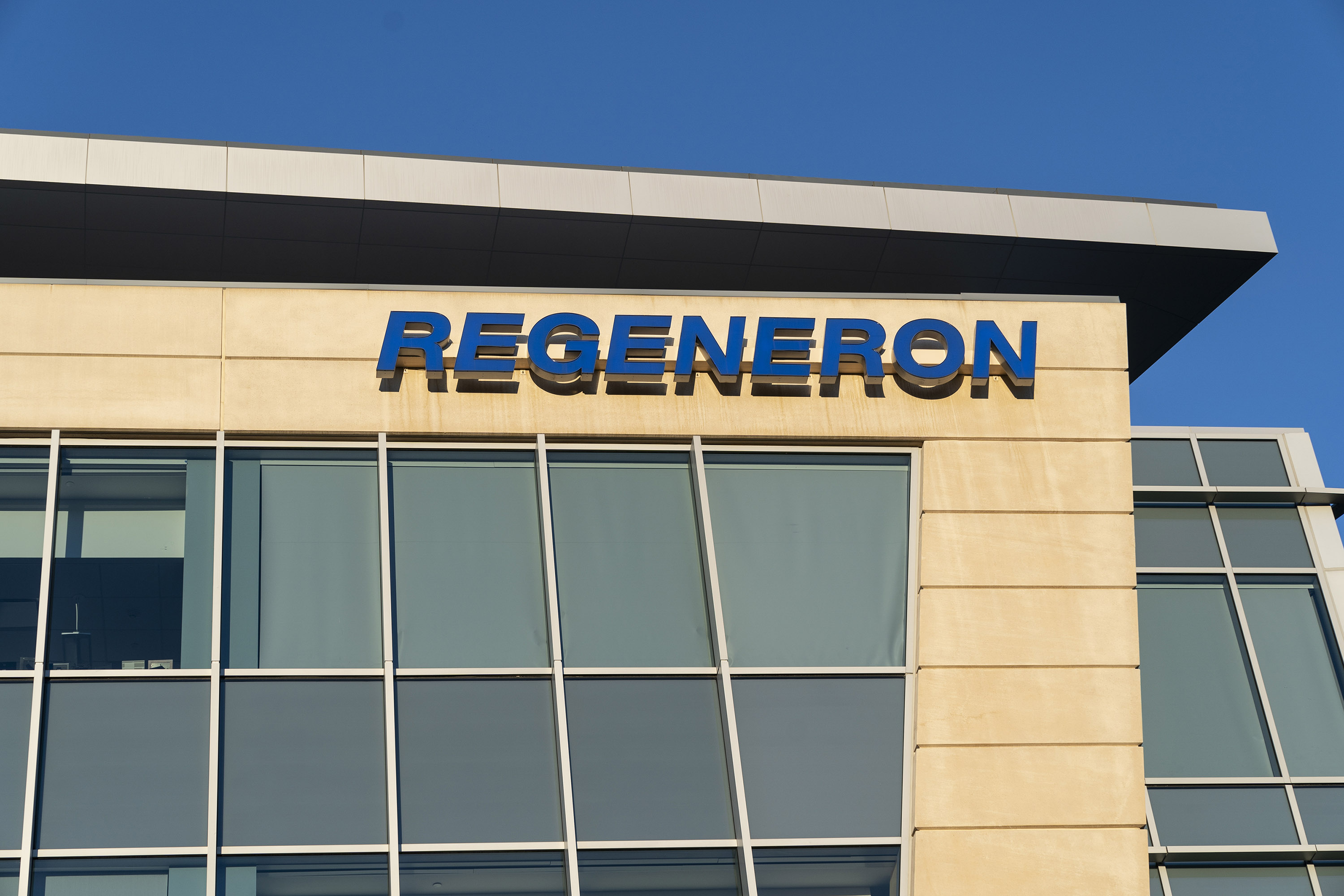Platinum COVID Treatment
"Whether or not it was that that got him better, I'm strongly suspicious that it was.""Whenever you have an N equals 1 you can't prove it, but I think that the monoclonal antibody made a difference."Dr.Anthony Fauci, Director, U.S.Centers for Disease Control and Infection
 |
| Regeneron Pharmaceuticals /LightRocket via Getty Images |
"[The logic behind the approach] is really quite simple [involving mass-producing] monoclonal antibodies [manufactured proteins that behave as human antibodies would against an infection or virus].""[Reducing viral load is a goal] but we don't know if that actually improves outcomes. There are lots of things that can impair viral replication that don't actually change outcome. Because by the time you get an actual symptom, the virus has spread a long way toward damage. It's entirely possible that by the time you're giving it you're giving it too late.""The short answer is: great promising therapy but we'll need to see better data.""If you're using it in situations where the person doesn't have an adequate immune response and the insult, the infection, is causing a lot of damage, then there's good logic to think this might be effective."Dr.James Downar, critical care physician, The Ottawa Hospital
"[Immune cells collected from the plasma of people exposed to SARS-CoV-2 can be harvested for antibodies.] You take those cells out and put them in a dish or a flask and 'immortalize' them -- make them kind of live forever and replicate forever [to produce antibodies endlessly.""It's impossible to know. The other piece is that, as far as I can tell, Trump had fairly mild symptoms, certainly not enough to qualify him to be hospitalized for a prolonged period of time or to require oxygen for a prolonged period of time.""For many people, if they had those symptoms, they would probably not be hospitalized -- they would be treated in the clinic and a lot of them would get better on their own, anyway.""Really hard to know, for all of those reasons, if this treatment made any difference in this particular case."Dr.Donald Arnold, hematologist, McMaster University, Hamilton
 |
| (Reuters: Erin Scott) |
'This particular case' was, of course the flash treatment of U.S.President Donald Trump who was diagnosed with COVID-19 last Thursday, and made a public statement the following day after which he was briefly hospitalized at Walter Reed Military Medical Center where his symptoms were closely monitored and he was briefly given oxygen several times. The experimental medication he was administered is being cautiously credited with his early release from hospital, although White House coronavirus adviser Dr.Fauci is reluctant to base any firm conclusion on the outcome of the sample size of one.
An eight-gram dose of the as-yet-unlicensed antibody cocktail produced by biotech company Regeneron where the president responded "without incident" to the infusion, has raised much speculation within the medical community. The anti-viral drug Remdesivir along with dexamethasone, an inexpensive steroid known to reduce deaths in people severely ill with COVID-19, were also administered. It isn't quite clear which of the elements of the therapeutic treatment President Trump was exposed to, if any -- or all, were responsible for his swift turn-around.
It was only two weeks earlier that Regeneron released an announcement that its investigational drug REGN-CoV2 was seen to reduce viral levels and improve symptoms swifter than did placebo, in 275 people who had contracted COVID-19, among them those who were mildly to moderately sick, but insufficiently ill to be hospitalized. Regeneron is testing its antibody injection for COVID in hospitalized people as well, in the United States.
The Regeneron research group used antibodies produced by transgenic (humanized; genetically modified rodents) mice exposed to SARS-CoV-2, sifting through thousands, along with antibodies sourced from people who recovered from COVID-19. Two antibodies binding to the spike protein crowning the COVID-19 virus were the focus since those pointed proteins enable the virus to enter human cells. The antibodies clamp onto the proteins, stopping the virus from entering cells to cause infection and to replicate.
The drug preparation that is meant to be injected into humans is comprised of antbodies mass produced in mice, collected to become part of the preparation after being concentrated, along with those harvested from immune cells that are collected from plasma of those people who had been exposed to SARS-CoV-2. Monoclonal antibodies therapy is a source of hope "because even though they're expensive and they're not going to make a gajillion doses, they could make a big difference in the whole landscape of the pandemic", explained Eric Topol, founder and director of the Scripps Research Translational Institute in La Jolla, California.
Then again, its production cost is high, and its production is time-consuming and laborious. The end product comes with a price tag of thousands of dollars each dose. And then there is the reality that any antibody therapy has the potential to produce an inflammatory response through an exaggerated response of the immune system that may, albeit infrequently cause damage to multiple organs.
 |
| Dr. Thomas Campbell, a University of Colorado School of Medicine and UCHealth infectious-disease specialist, is leading clinical trials to learn whether the Regeneron antibody cocktail that President Donald Trump received works for patients with COVID-19. Photo: UCHealth. |
Labels: Experimental Therapy, President Donald Trump, Regeneron, SARS-CoV-2

0 Comments:
Post a Comment
<< Home